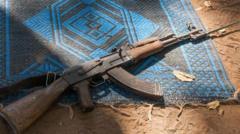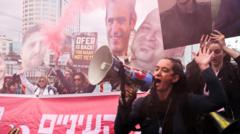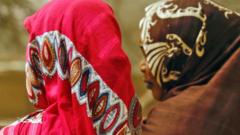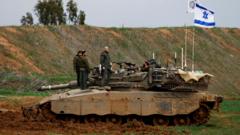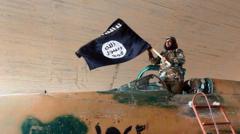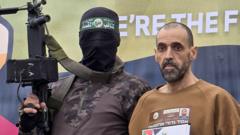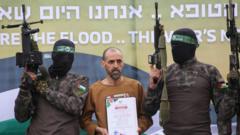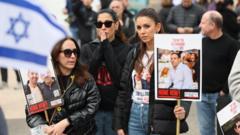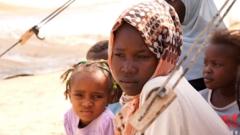The Sudanese army has announced a significant military achievement with the breaking of a nearly two-year siege by the paramilitary Rapid Support Forces (RSF) on the strategic city of el-Obeid. This development coincided with the RSF's signing of a political charter in Nairobi, Kenya, which aimed to establish a separate government in regions they control. Since April 2023, the RSF and the army have been engaged in fierce clashes, leading to the deaths of tens of thousands and the displacement of millions.
Sudan Army Lifts Two-Year Siege on El-Obeid Amid Ongoing Conflict
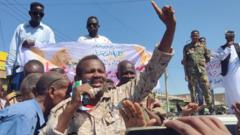
Sudan Army Lifts Two-Year Siege on El-Obeid Amid Ongoing Conflict
Sudan's military claims victory as it ends a two-year blockade by paramilitary forces on a key southern city, igniting mixed reactions from local activists and international observers.
El-Obeid, the capital of North Kordofan state, serves as a vital link between Khartoum, the national capital, and the conflict-stricken Darfur region. Recent months have seen the army regain ground in various locations, including parts of Khartoum, amplifying jubilation among pro-army civilians. Military spokesperson Nabil Abdallah confirmed that RSF units were decisively defeated in these advances.
Finance Minister Jibril Ibrahim heralded the army's progress as a "massive step" towards eliminating RSF's hold on el-Fasher, North Darfur's capital, while also facilitating humanitarian relief efforts in Kordofan. Meanwhile, civil society activist Dallia Abdlemoniem emphasized the moment's significance, stating that the RSF had kept civilians in el-Obeid "captive" for nearly two years. She also acknowledged the army's momentum toward western territories primarily controlled by the RSF.
The conflict has left both the army and RSF with allegations of serious human rights violations, with US sanctions imposed on their leaders. The RSF has been accused of genocide in Darfur, which the group denies. The recent political maneuvering by the RSF in Kenya has drawn criticism, and Sudan's Foreign Minister Ali Youssef has communicated that the country won't recognize any parallel government. In contrast, Kenya's foreign ministry defended its hosting of the RSF as an act of neutrality.
As the situation in Sudan remains volatile, with humanitarian concerns escalating alongside military efforts, both local and international observers continue to evaluate the potential implications of these developments on stability and human rights in the region.
Finance Minister Jibril Ibrahim heralded the army's progress as a "massive step" towards eliminating RSF's hold on el-Fasher, North Darfur's capital, while also facilitating humanitarian relief efforts in Kordofan. Meanwhile, civil society activist Dallia Abdlemoniem emphasized the moment's significance, stating that the RSF had kept civilians in el-Obeid "captive" for nearly two years. She also acknowledged the army's momentum toward western territories primarily controlled by the RSF.
The conflict has left both the army and RSF with allegations of serious human rights violations, with US sanctions imposed on their leaders. The RSF has been accused of genocide in Darfur, which the group denies. The recent political maneuvering by the RSF in Kenya has drawn criticism, and Sudan's Foreign Minister Ali Youssef has communicated that the country won't recognize any parallel government. In contrast, Kenya's foreign ministry defended its hosting of the RSF as an act of neutrality.
As the situation in Sudan remains volatile, with humanitarian concerns escalating alongside military efforts, both local and international observers continue to evaluate the potential implications of these developments on stability and human rights in the region.






